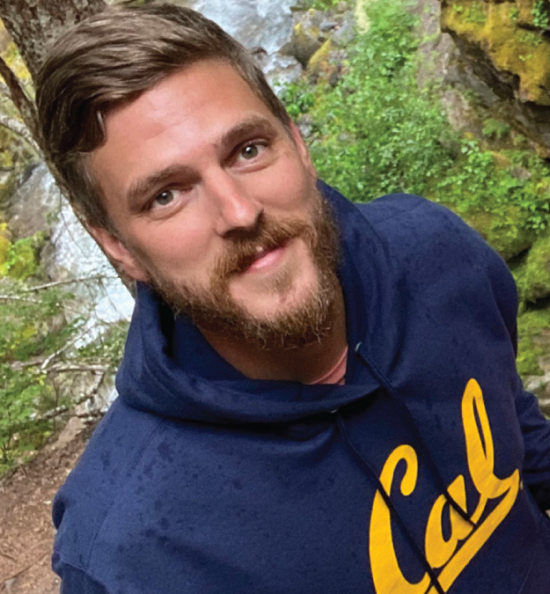First-semester MIDS student Kevin Lustig has been awarded the Fall 2021 Jack Larson Data for Good Fellowship. The fellowship supports Master’s of Information and Data Science (MIDS) students who desire to use data science to benefit society.
Many humanitarian and relief organizations have an abundance of data to support their causes. But what do you do with all of the data? How do you use it most effectively?
These are the questions that brought Lustig to the I School. While he didn’t set out to be a digital technologist — his undergraduate degree is in Spanish literature — he cut his teeth in digital communications while working at a large environmental think tank in Washington, DC. He’s continued to work in the digital space: doing web development and strategy for various nonprofit organizations. He’s worked with the Red Cross International Disaster Response team after the 2015 earthquake in Nepal, helped drive clean energy legislation with the World Resources Institute, and assisted with child vaccination efforts with the International Vaccine Access Center. He sees his digital technologist role as central to helping organizations use their data to tell an effective story. Doing so, he said, “I bridge the gap to help them leverage [data] in the digital space.”
He doesn’t love data that has nothing to say: “When I hear organizations say they want a dashboard, I get a little nervous,” he said. “Dashboards can be super useful, but oftentimes I feel like organizations have dashboards on their websites in lieu of thinking about the information they have.” He went on to say that “You have to have real, hard substantive data. And it has to say something. And if you say it right? Then you can make something happen, and you can make a change in the world, and that’s my sweet spot.”
Lustig says there’s also a growing — and urgent — class of problem that defies traditional analytical methods, where the data are concise enough and the knowns are known enough. “Globally, climate-driven natural disasters are increasing, both in terms of severity and the size of the population threatened by them.”
Practitioners he’s collaborated with across the humanitarian/relief space agree there needs to be an imperative to implement new strategies for sustainable resilience before, during, and after a natural disaster strikes. But how?
That’s where the I School comes into the picture. Lustig intends to use the toolset he will gain in the MIDS program toward solving the humanitarian problems that are unprecedented both in perplexity, and in their ripeness for advanced data science solutions. “I believe,” he said, “the privilege of gaining mastery of these skills demands as much, and the challenges of our time require no less.”










